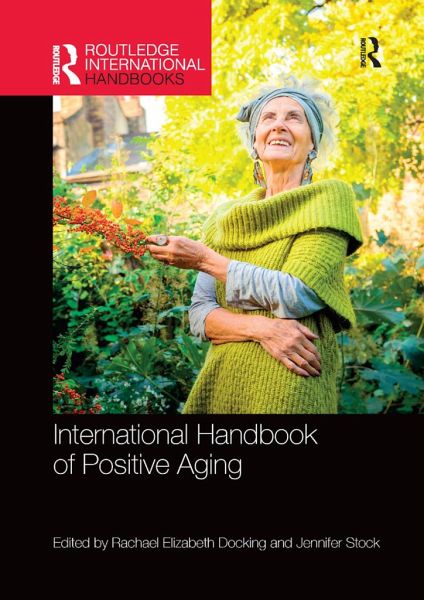
International Handbook of Positive Aging
Versandkostenfrei!
Versandfertig in 1-2 Wochen
62,99 €
inkl. MwSt.

PAYBACK Punkte
31 °P sammeln!
As our global demographic shifts towards an increasingly aging population, we have an opportunity to transform how we experience and think about getting older and embrace the diversity and contribution that this population can bring to society. The International Handbook of Positive Aging showcases the latest research and theory into aging, examining the various challenges faced by older adults and the ways in which we can bring a much-needed positive focus towards dealing with these. The handbook brings together disparate research from medical, academic, economic and social community fields, ...
As our global demographic shifts towards an increasingly aging population, we have an opportunity to transform how we experience and think about getting older and embrace the diversity and contribution that this population can bring to society. The International Handbook of Positive Aging showcases the latest research and theory into aging, examining the various challenges faced by older adults and the ways in which we can bring a much-needed positive focus towards dealing with these. The handbook brings together disparate research from medical, academic, economic and social community fields, with contributions from NHS partners, service users, universities across the United Kingdom and collaborations with international research leaders in the field of aging. Divided into sections, the first part of the book focuses on introducing the concept of positive aging before going on to cover the body over the life course, well-being and care delivery. All contributors recognise the fact that we are living longer, which is providing us with a tremendous opportunity to enjoy and flourish in healthy and fulfilling later lives, and this focus on the importance of patient empowerment is integral to the book. This is a valuable reference source for those working in developmental psychology, clinical psychology, mental health, health sciences, medicine, neuropsychological rehabilitation, sociology, anthropology, social policy and social work. It will help encourage researchers, professionals and policymakers to make the most of opportunities and innovations to promote a person's sense of independence, dignity, well-being, good health and participation in society as they get older.














